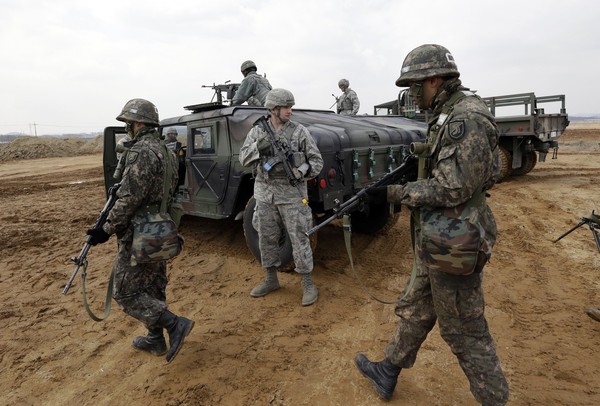There are no isolationists, so why do we keep hearing that word?

Michael Hirsh says that there's a new monster stalking the nation's capital: neo-isolationism. Here's his evidence:
Perhaps nothing more vividly illustrates this dramatic transformation in U.S. foreign policy than the reversal of roles on the world stage of the United States and France. A decade ago, in the months before the Iraq invasion, the French played the role of chief challengers to the Bush administration and were derided as â??cheese-eating surrender monkeys,â? in the colorful tabloid phrase of the time. Today, it is France that is taking the lead in intervention, prodding the U.S. forward in Libya, Syria and Mali.To a degree that the American public may not even be aware of, the U.S. military is now playing a supporting role to the French, with logistical aid and airlift in Mali, much as it did in Libya. In addition, Washington is only slowly coming around to the hawkish French view of Syria's stalemate: Autocrat Bashar al-Assad wonâ??t be moved to negotiate unless the rebels can change the military balance with Western arms. A senior Western diplomat says Americaâ??s reluctance to intervene today, even in a humanitarian crisis as bloody as Syriaâ??s, is not unlike where Washington was at the beginning of the Bosnia crisis of the early 1990s, when then-President Clinton was criticized for his hesitation (he eventually came around to supporting NATO strikes and empowered an aggressive U.S. diplomat, the late Richard Holbrooke, to take the lead from the Europeans in negotiations).
So ... the evidence that America has turned isolationist is that it has intervened in two countries (in the past several months) but on a more limited basis and not as fast as some people would like.
With all due respect to Hirsh, this is rather thin beer.
In fact, the "neo-isolationist" meme would be farcical and embarrassing if it wasn't so pernicious. As Daniel Larison notes, there are no isolationists in any meaningful sense of that term operating in American politics today. Even the more ardent non-interventionists still endorse trade and diplomacy. Many realists support the U.S. maintaining some international power projection capabilities as well.
So the term "isolationist" is really a short-hand for someone who opposes a particular war or intervention. It would be helpful if Hirsh and others chronicling Washington's foreign policy debate would be more specific here: There may indeed be a greater scrutiny with respect to the costs and benefits of putting U.S. boots on the ground in various parts of the world, but that's a far cry from "isolationism." Conflating it as such plays into the hands of demagogues.
(AP Photo)



